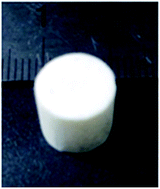Wide range temperature-dependent deformation and fracture mechanisms for 8701 under dynamic and static loading
Abstract
Although the RDX-based composite explosive 8701 explosive 8701 has been widely used to achieve military goals, its mechanical properties have not been carefully investigated. In the present study, we focused on the mechanical response of 8701 at a wide range temperature from −125 °C to 100 °C under both quasi-static (about 0.001 s−1) and high-rate compression loading (about 600 s−1). The stress–strain curves exhibit different tendencies at different temperatures for both quasi-static and high strain-rate loading. The failure stress and elastic/storage modulus present important temperature-dependence. Differential scanning calorimetry (DSC) tests showed that the glass transition temperature and softening temperature of 8701 are 11.61 °C and 15.14 °C respectively, which is lower than that of the binder (with glass transition temperature of 25 °C and softening temperature 38 °C). For the quasi-static loading, scanning electron microscopy (SEM) observations revealed that 8701 shows an interface debonding failure mode along the binder phase below 15 °C, while the mechanical behavior of 8701 is dominated by softening behavior of the binder above 38 °C. For high-rate loading, 8701 shows a mixture of interface debonding and trans-granular cleavage when below 15.14 °C.



 Please wait while we load your content...
Please wait while we load your content...